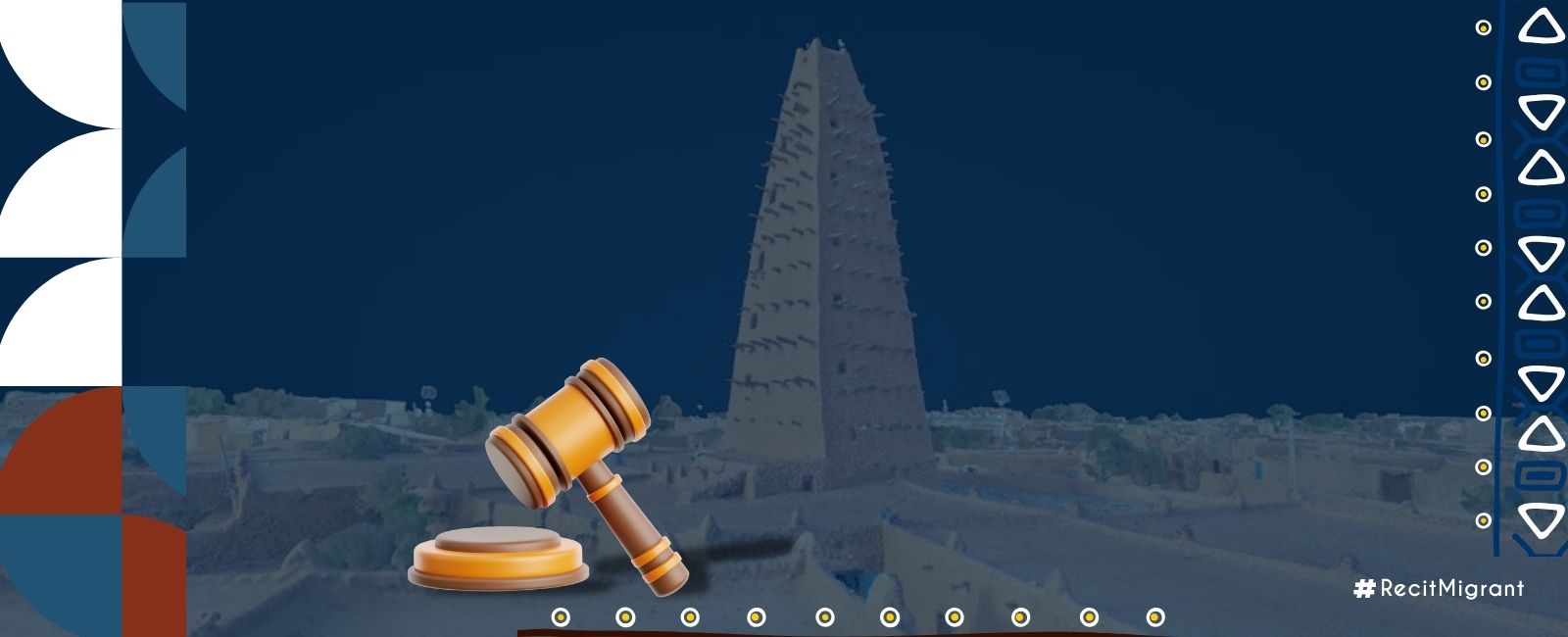

In 2015, following the deaths of several migrants in the desert (including women and children), the then authorities decided to tackle irregular migration. The outcome was Law 2015-36 against smuggling migrants into Niger. Since its adoption, this law has been the subject of controversy and denunciation by migrants’ rights defenders in Niger. They described it as a ‘liberticidal law’ that would destroy the economic development of the Agadez region. In 2023, just after the coup d’Etat that toppled the regime in power, the new authorities, the Conseil National pour la Sauvegarde de la Patrie (CNSP), repealed Law 2015-36. More than a year later, Dialogue Migration takes its readers back to the city of Agadez to see what the atmosphere is like and how migration-related activities are resumed.
Controversial Law
In November 2015 and following the tragedy known as the Kantché tragedy , in the Niger Desert, Department of Dirkou (30 October 2015) where 92 corpses, mainly women and children were discovered, the authorities took the decision to ‘prevent and combat the smuggling of migrants, protect the rights of migrants and facilitate national and international cooperation to prevent and combat the smuggling of migrants in all its forms’. This decision was taken through Law 2015-36 of 26 May 2015 on the smuggling of migrants. In practice, Law 2015-36 has turned Niger into an open-air prison for sub-Saharan migrants wishing to continue their journey to North Africa. Worse still, the law provides for criminal penalties, including imprisonment and the seizure of lorries used to transport migrant smuggling. The situation resulting from the implementation of Law 2015-36 has also paralyzed economic activity in the town of Agadez. Migration plays a major role in the economy of the town. Migration has also given rise to several businesses in Agadez.
Since the adoption of Law 2015-36, a number of human rights defenders have denounced its repressive nature. According to them, it runs counter to the most fundamental individual freedoms. The Law was said to deprive would-be migrants of the right to mobility.
Migration-related activities resume since Law 2015-36 repeal
In a 27 November 2023 press release, the Conseil National pour la Sauvegarde de la Patrie (CNSP) issued decree no. 2023-16 of 25 November 2023 to repeal law 2015-36 on the smuggling of migrants d. The CNSP’s justification is that the law was passed without taking into account the interests of Niger and its people. Also, according to the CNSP press release, the law did not comply with Community rules, and its sole aim was to satisfy the interests of certain powers by criminalising certain activities that are by nature, legitimate. Admittedly, migrants’ rights defenders hailed the reasons put forward by the new authorities However, the real reason behind the repeal lies in the circumstances namely the coup d’état and the tug-of-war between the new authorities and the European Union. In fact, the European Union condemned the coup as soon as it was announced and refuted the legitimacy of the new authorities, thereby suspending some of its non-humanitarian activities in the country. According to some analysts, the Niger authorities repealing the law was a response to the European Union decisions.
Whatever the reason, the news was well received in Agadez and by migrant rights activists. For the migrants’ rights defenders, this is the culmination of a long struggle waged since 2015. For the people of Agadez, it is a new opportunity to revive activities in the region. ‘Convoys are organised every week heading north to Algeria or Libya,’ explains Ahmadou Attafa, an Agadez resident. Ahmadou Attafa added that, these convoys to the Maghreb are reviving commercial activities in the town: ‘the sale of gadgets for travelling in the desert, such as water jerry cans, turbans and protective goggles’ , explaining the resumption of economic activities inAgadez.
The city of Agadez is currently at a turning point, thanks to the repeal of Law 2015-36 and the introduction of a new order relating to the free entry of foreigners into Niger, thereby opening up new prospects. The lifting of this controversial law has not only revived economic activities linked to migration, it has also given new hope to a population that has long been affected by restrictions perceived as oppressive. However, the new order imposes regulations designed to balance the need for territorial security whilst respecting the fundamental rights of migrants.
This shift reflects the authorities’ determination to reconcile security requirements with the economic and social development of the Agadez region. The resumption of convoys to the north testifies to the resilience of the inhabitants and their attachment to the migratory dynamics that have always shaped their local identity. It has become crucial to monitor how this new policy will impact on the flow of migrants, relations with neighbouring countries and the well-being of the local communities.
In addition to the expected economic boom, this situation raises profound questions about the management of migration in West Africa. How does Niger strike a balance between preserving its sovereignty, international pressure and protecting human rights? The answers could influence not only the future of Agadez, but also migration trends throughout the region. Perhaps now is the time for a more holistic approach, one that recognises migration not as a problem to be overcome, but as a reality that requires more humane and sustainable management.
Recently Published
Subscribe to our newsletter!
Quick Links


